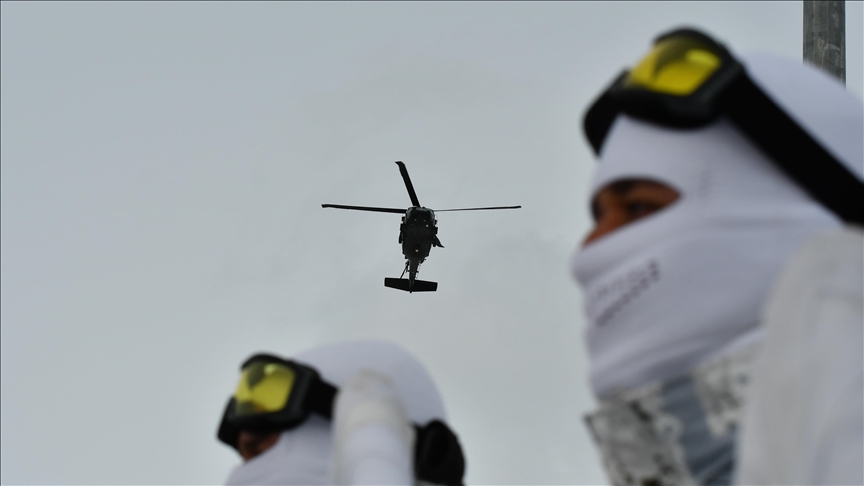Denmark to bolster NATO Baltic Sea operations with fighter jets, navy vessels
The operations are part of efforts to protect critical infrastructure including cables in the Baltic Sea

COPENHAGEN, Denmark
Denmark announced Thursday that it will contribute fighter jets and naval vessels to NATO operations in the Baltic Sea to enhance regional security and protect critical infrastructure.
“Intensified surveillance [of the Baltic Sea] will be done with aircraft and ships with periodic operations and in ongoing coordination with NATO and Baltic Sea allies,” the Defense Ministry said in a written statement to the Ritzau news agency.
The operations aim to safeguard vital undersea infrastructure, including cables, amid a series of suspected sabotage incidents affecting electricity and gas lines in the Baltic Sea.
While Sweden and Finland have already confirmed increased military activity in the Baltic Sea, Denmark's involvement had not been previously disclosed.
Infrastructure Incidents in the Baltic Sea
The Baltic Sea has become a hotspot for infrastructure sabotage since the onset of Russia's war in Ukraine in February 2022, heightening tensions across the region.
Most recently, Finland detained the Eagle S tanker in connection with damage to subsea cables on Christmas Day.
In November, two telecommunications cables connecting Sweden and Denmark were severed, with Swedish authorities suspecting the Chinese vessel Yi Peng 3, which had sailed over the cables. However, China denied Sweden's request to investigate the ship.
Other incidents include damage to the Arelion submarine cable linking Sweden's Gotland island to Lithuania and the C-Lion 1 cable connecting Finland and Germany. Both were damaged near Swedish waters last November.
European officials have suggested sabotage as a potential cause, hinting at Russia's possible involvement. The Kremlin has dismissed these allegations as “absurd.”
The September 2022 explosions that ruptured the Nord Stream pipelines carrying Russian gas to Europe remain unresolved, further emphasizing the region's vulnerability to undersea attacks.
Authorities across the Baltic region continue to investigate these incidents.








